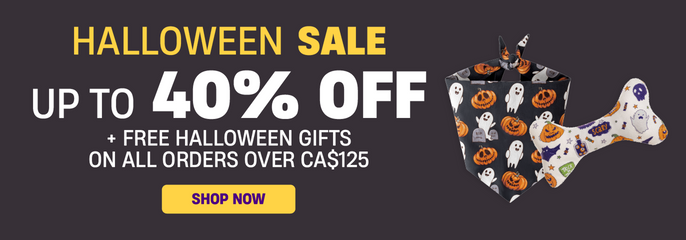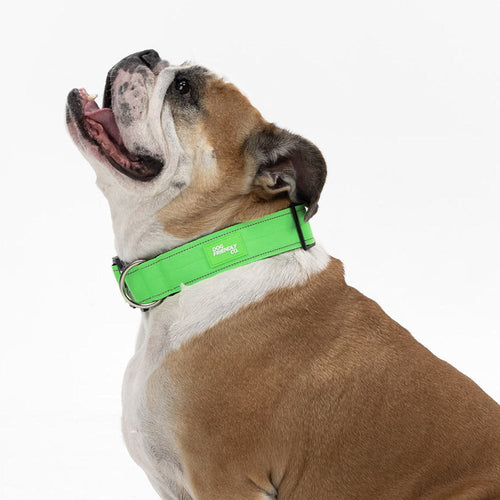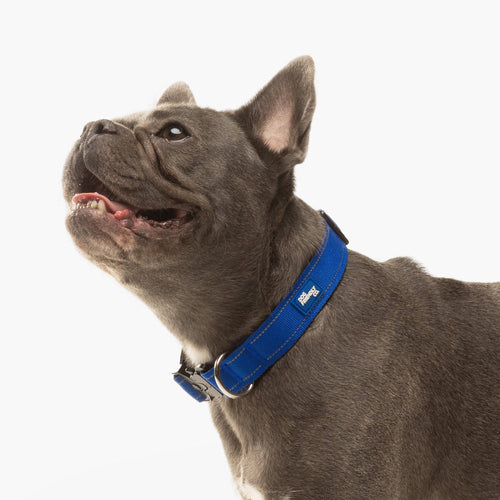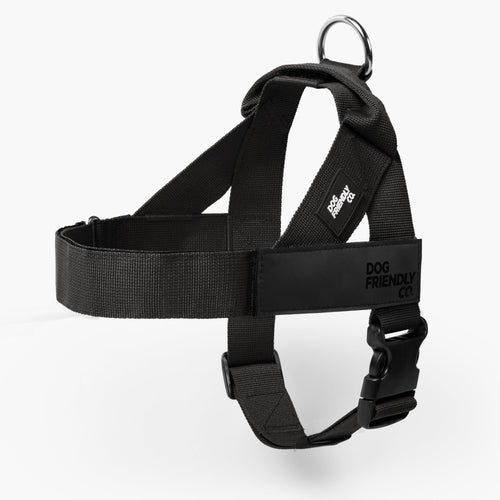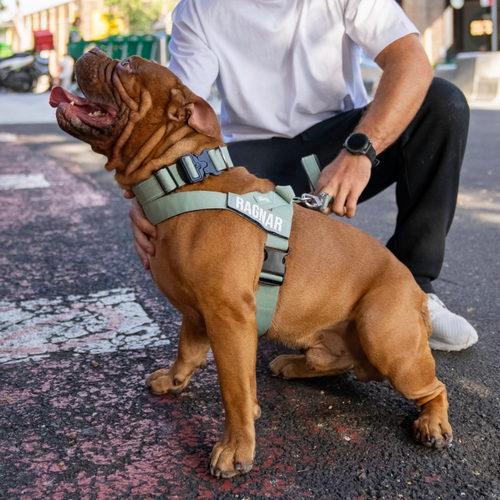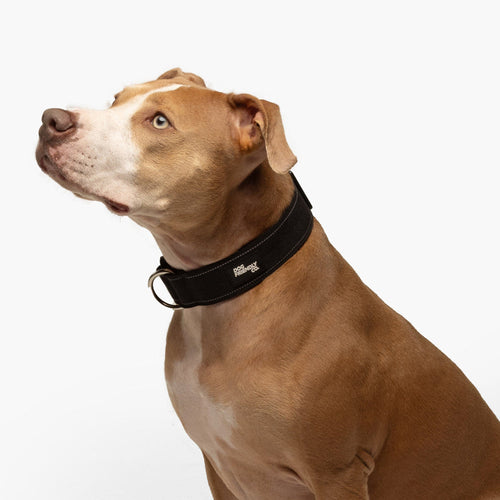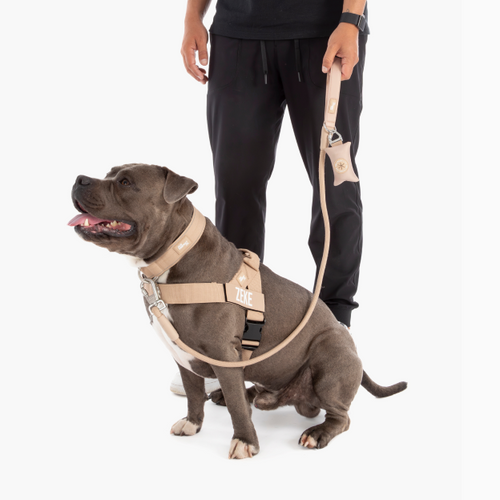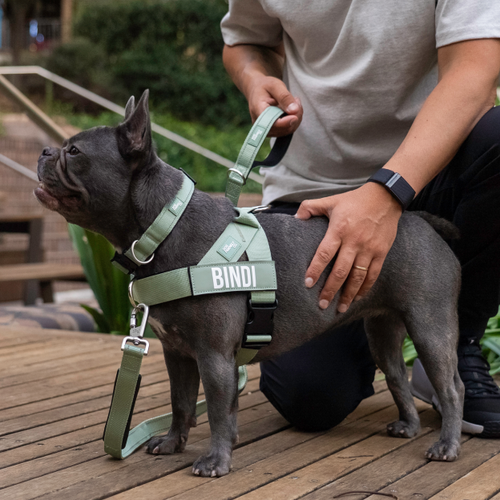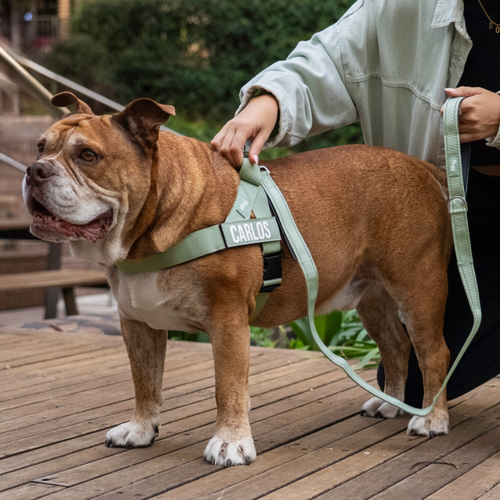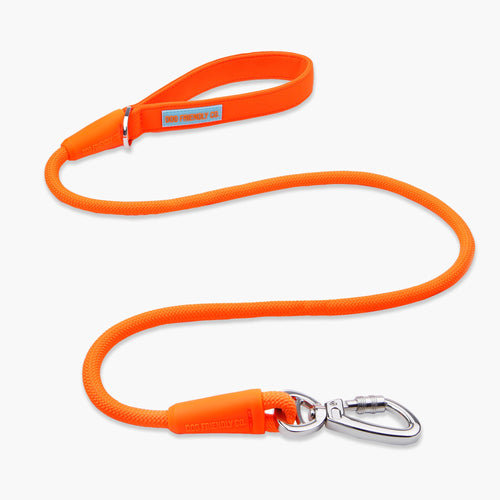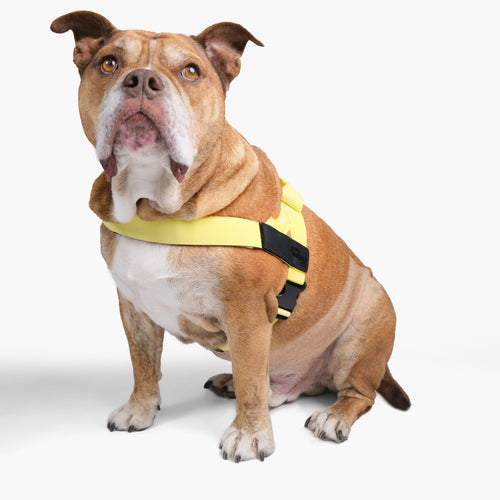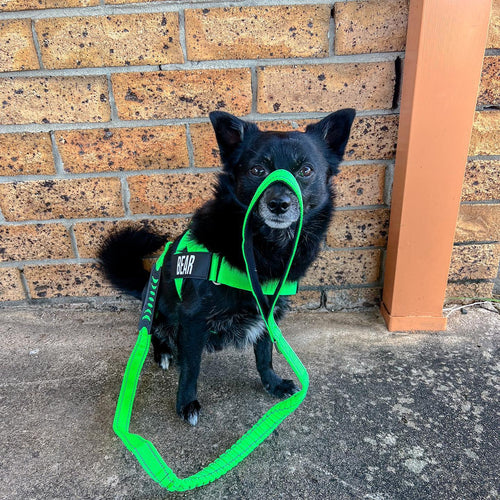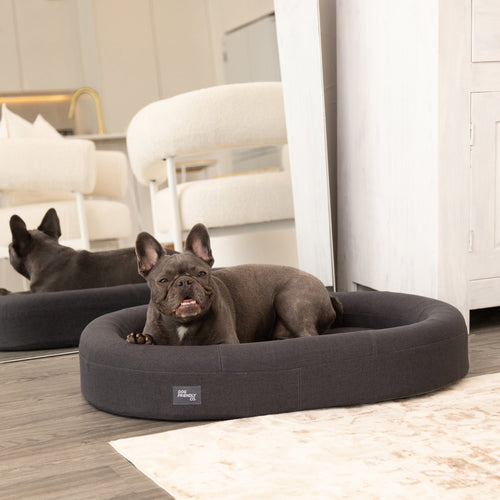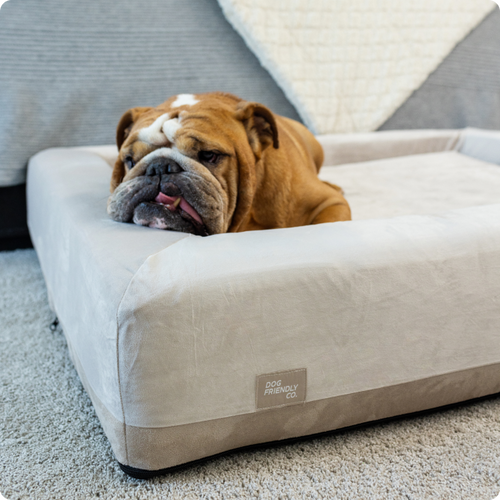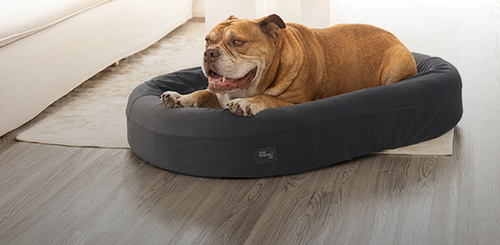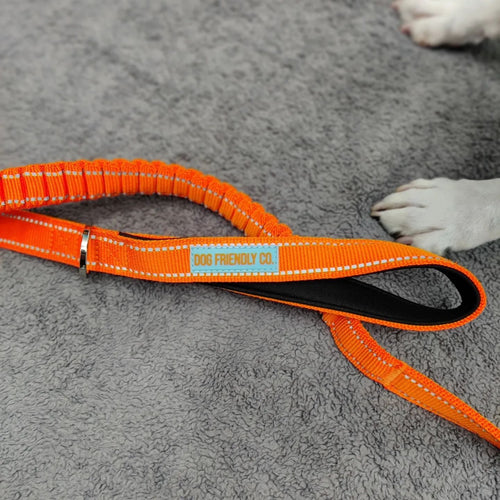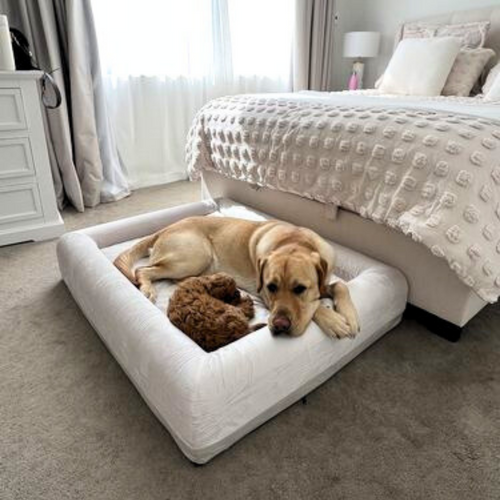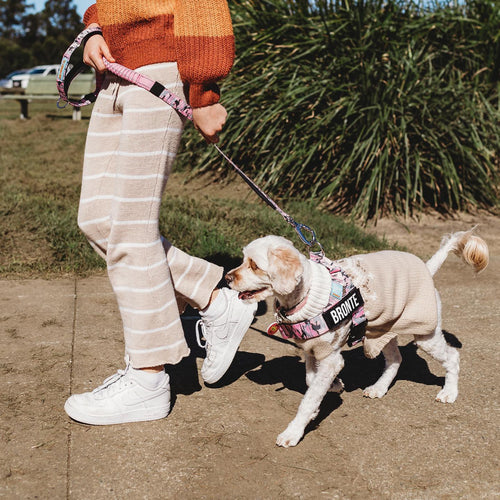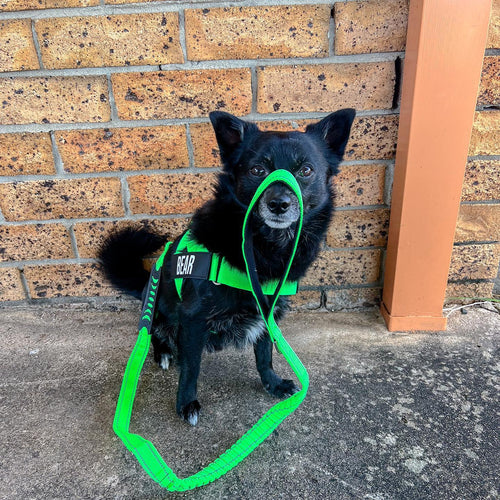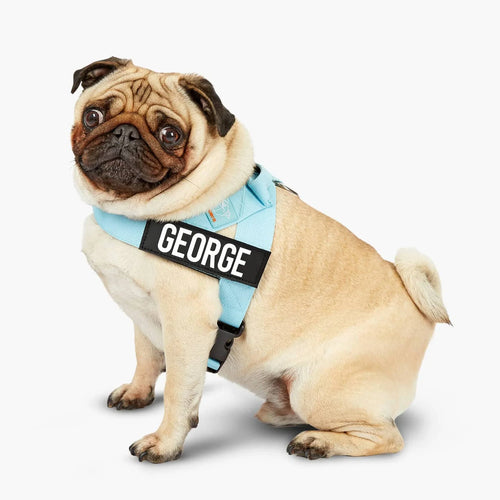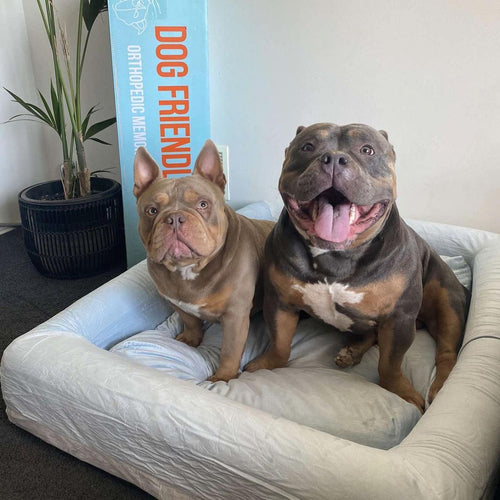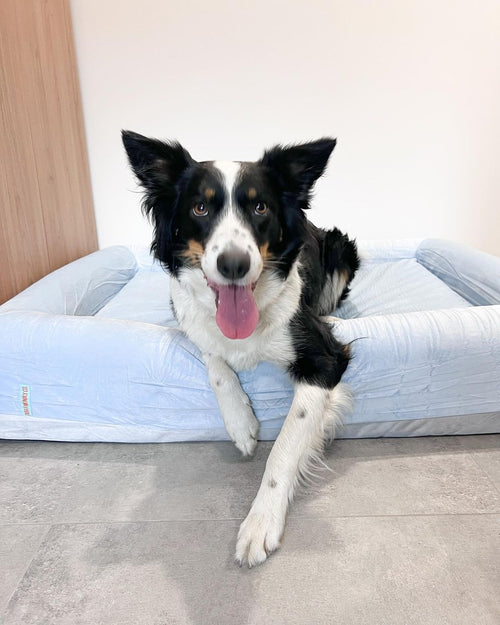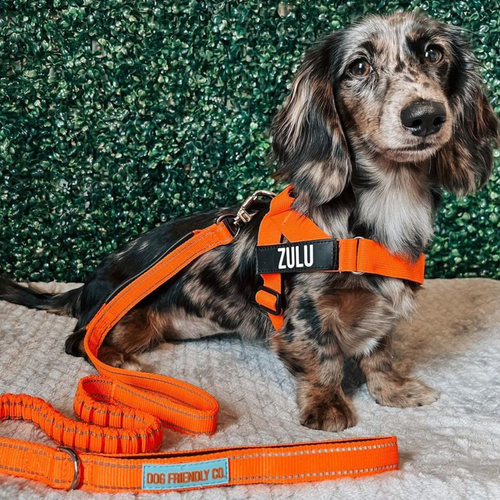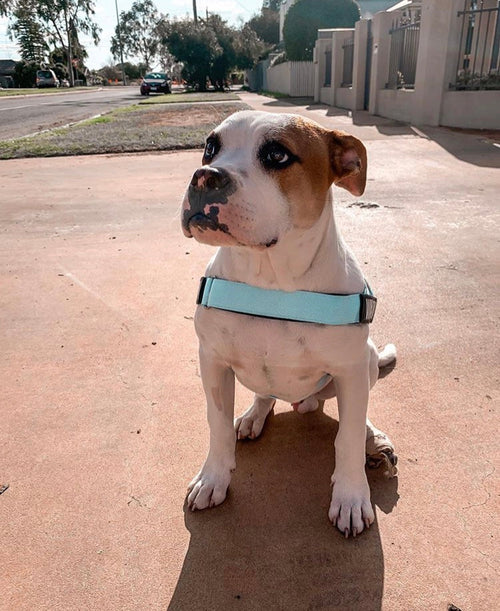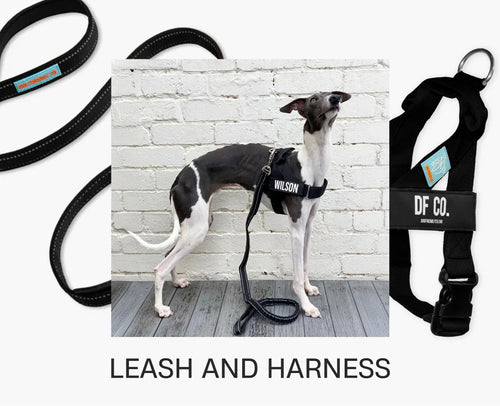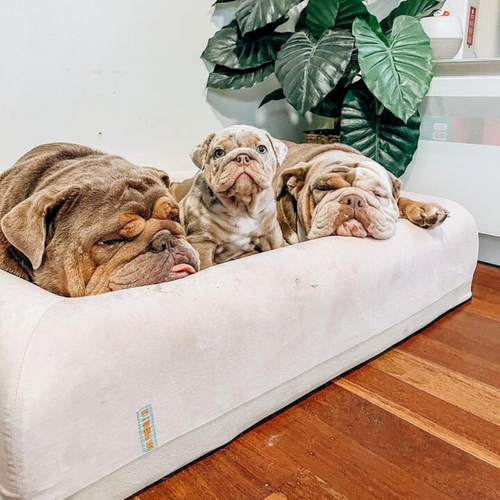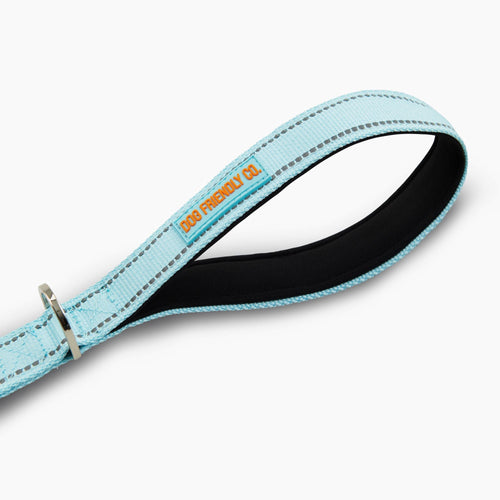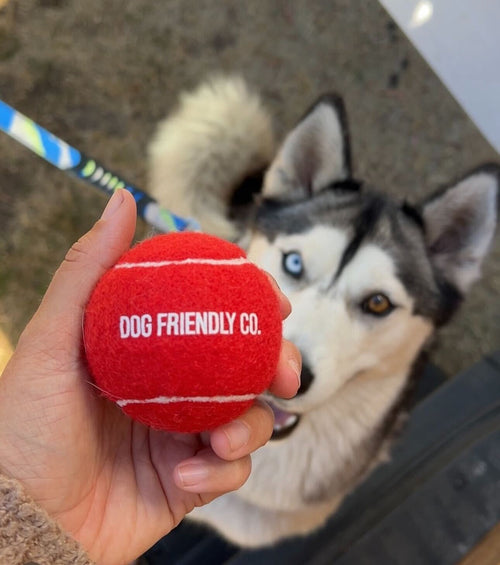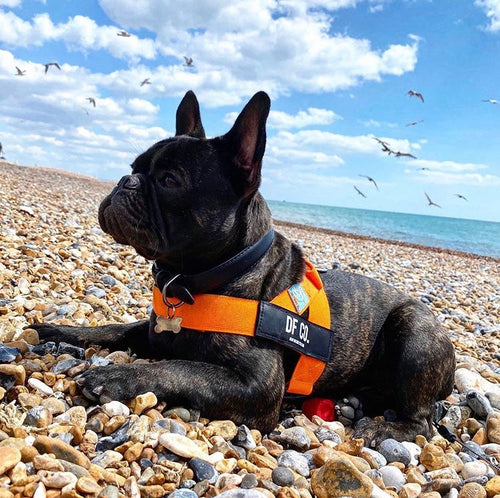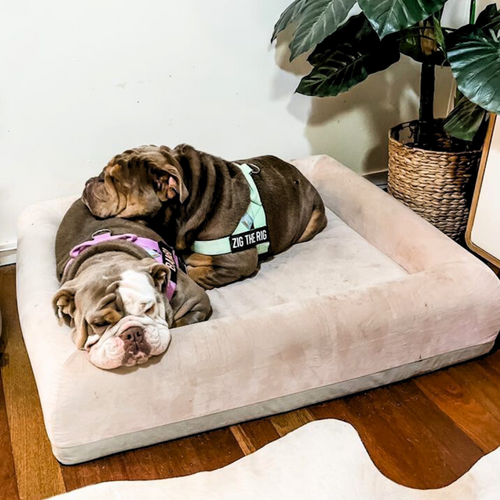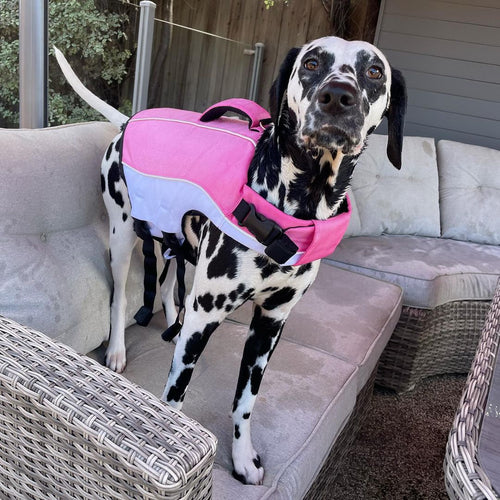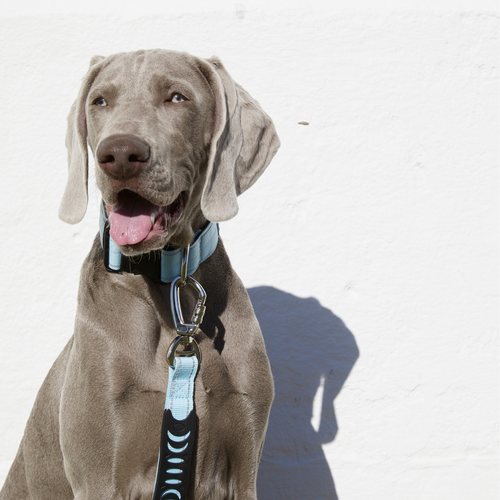
Like humans dogs can experience anxiety. It is generally a normal and healthy emotion. Anxiety is a feeling that’s part of a dog's normal stress response, allowing them to be aware and take action. It happens briefly during certain situations they don’t like, such as going to the vet, or meeting new people, or riding in the car. But if the dog continues to have frequent anxiety and stress, left unchecked this can take a toll on their physical and mental health.
What are the signs of anxiety in dogs?
Sometimes the signs of anxiety in dogs can vary between being something as subtle as putting their ears back, or they can be as obvious as loud barking. Each dog is different so the way they manifest their anxiety will be different too.
- Hiding
- Pacing
- Panting
- Licking or Biting themselves
- Tail-tucking
- Ears back
- Crying/Whining
- Urination/ Bowel movements
- Circling
- Decreased Appetite
- Aggression/Destructive Behaviour
- Excessive Barking
- Self-injury
Anxiety in dogs can range from mild to severe, and can show itself in a number of stress-related behaviours. When a dog is anxious, it’s common for them to be destructive in the house, and in an attempt to get out they may injure themselves or do significant damage. Aggression is another result of dog anxiety. Aggression can be aimed at people or other dogs, and becomes difficult to deal with. Unfortunately these behaviours are common in anxious dogs and are misunderstood by some. Becoming the main reason why dogs are euthanized or surrendered to animal shelters. While some people might think they’re dealing with an aggressive dog, when in fact the dog might have just had anxiety.
What Causes Dog Anxiety?
There are lots of possible underlying causes. This can be prompted by a variety of things like, socialization issues, traumatic experiences, separation issues, or age related health conditions and even genetics.
A dog’s anxiety can stem from a bad experience, the anxiety will continue to escalate until it is stopped and treated. In some cases, it started during its younger years, when a puppy isn’t able to learn how to socialize with other dogs and people, or be exposed to different places or noises during its 3-16 weeks of age they become more likely to suffer from anxiety.
Separation anxiety is also very common among dogs. This type of anxiety comes from the dogs feeling bored or lonely, or dogs that had a history of being abandoned, experienced neglect, or had not learned to be alone as a puppy.
Sometimes dogs with an underlying illness and disease can experience anxiety. This is common for older dogs. If your dog suddenly shows signs of anxiety, its best to schedule a visit with your local vet and have them check if there are any diseases being the cause of their anxiety.
How do we treat dogs with anxiety?
Set an appointment with your vet, they can help identify the type of anxiety the dog has, its possible causes and triggers. Additionally, they can help with a treatment plan, since anxiety is caused by a variety of factors, the best way to treat it is through the following:
Avoidance
- This means avoidance of the trigger that causes the anxiety, for example, if your dog is afraid of fireworks or loud noises, placing their bed somewhere in a corner of the house where it’s less likely to hear all the noise, giving them a safe place to stay can help decrease the impact of those loud noises. A great safe space for dog’s is a dedicated bed. It is a place common to them and comfortable to snuggle into. Some beds such as the Dog Friendly Co. Orthopedic Bed even have specialised features to help relieve anxious dogs.
Desensitization training and Counterconditioning
- Slowly getting the dog used to what causes their anxiety by minimising the cause as much as possible. While counterconditioning is changing the way the dog responds to what causes their anxiety.
Medication
- When the dog’s anxiety is so severe that they require medication, this will be prescribed by the veterinarian along with behaviour modification training.
As a dog owner it’s important that we recognize the signs of anxiety in dogs and understand that there are many underlying causes and triggers, and treatment options available. Helping your dog overcome their anxiety will take a lot of commitment and love but will be worth it knowing you’re helping them live a better life.
